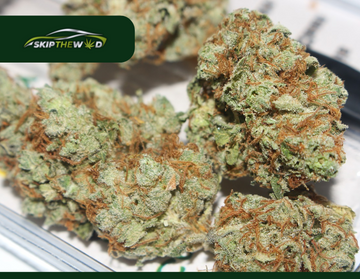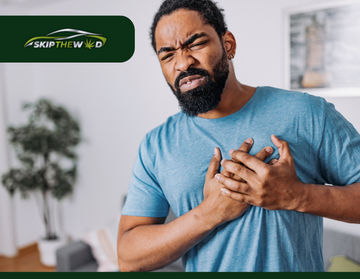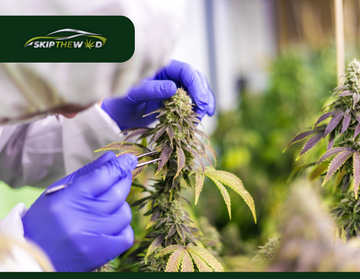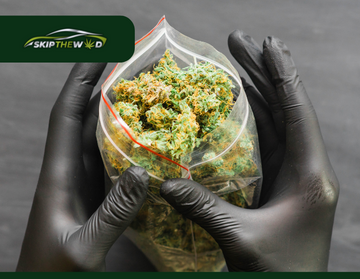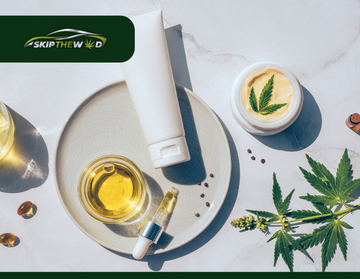Anxiety disorders affect millions of individuals worldwide, often manifesting as excessive worry, restlessness, and physical symptoms such as increased heart rate and sweating. Traditional treatments for anxiety typically include medications such as selective serotonin reuptake inhibitors (SSRIs) and benzodiazepines. However, these options can sometimes lead to side effects and dependency issues, prompting many to seek alternative solutions.
In recent years, microdosing medicinal cannabis has emerged as a promising approach for managing anxiety. This article explores the science behind microdosing, its potential benefits for patients with anxiety, and how it can serve as an effective tool in their treatment arsenal.
Understanding Microdosing
Microdosing refers to the practice of consuming very small, sub-perceptual doses of a substance, often around 1/10th to 1/20th of a standard dose. In the context of cannabis, this typically involves taking minimal amounts of cannabinoids, primarily tetrahydrocannabinol (THC) and cannabidiol (CBD), to achieve therapeutic benefits without experiencing significant psychoactive effects.
1. The Goal of Microdosing: The primary aim of microdosing is to provide relief from symptoms while minimizing the risk of side effects commonly associated with higher doses. This allows individuals to incorporate cannabis into their daily lives without the impairment that often accompanies traditional recreational use.
2. Tailored Dosing: One of the key advantages of microdosing is the ability for individuals to personalize their experience. By starting with low doses and gradually adjusting as needed, patients can find the optimal level that provides anxiety relief without unwanted side effects.
The Science Behind Cannabis and Anxiety
Cannabis contains over 100 cannabinoids, each interacting with the body’s endocannabinoid system (ECS) in unique ways. The ECS plays a crucial role in regulating mood, stress response, and overall mental health. Here’s how cannabinoids like THC and CBD can impact anxiety:
- Tetrahydrocannabinol (THC): While THC is known for its psychoactive effects, it can also have anxiolytic (anxiety-reducing) properties when used in controlled amounts. At low doses, THC can enhance mood and create a sense of relaxation, which may alleviate symptoms of anxiety for some individuals.
- Cannabidiol (CBD): Unlike THC, CBD is non-psychoactive and has garnered attention for its potential therapeutic effects, particularly in treating anxiety disorders. Research has indicated that CBD may interact with serotonin receptors in the brain, leading to reduced anxiety levels. Furthermore, CBD has anti-inflammatory properties that can contribute to overall mental well-being.
Potential Benefits of Microdosing Cannabis for Anxiety
Microdosing medicinal cannabis can offer several advantages for patients dealing with anxiety:
- 1. Reduced Anxiety Symptoms: Many users report that microdosing helps them manage their anxiety more effectively than conventional treatments. By finding the right balance of cannabinoids, patients can experience relief from symptoms without the debilitating side effects of higher doses.
- 2. Improved Focus and Clarity: While higher doses of THC can lead to impaired cognitive function, microdosing may enhance focus and clarity, allowing individuals to engage in daily activities without feeling overwhelmed by anxiety. This can be particularly beneficial for those who struggle with concentration due to anxious thoughts.
- 3. Less Risk of Dependency: Microdosing can reduce the risk of developing dependency compared to traditional anti-anxiety medications. By using cannabis in controlled, low doses, patients can experience therapeutic benefits without becoming reliant on higher doses or experiencing withdrawal symptoms.
- 4. Better Sleep Quality: Anxiety often disrupts sleep patterns, leading to insomnia and fatigue. Microdosing cannabis can promote relaxation and help individuals fall asleep more easily, leading to improved overall mental health.
- 5. Minimal Side Effects: One of the most significant advantages of microdosing is the reduced likelihood of experiencing side effects. Traditional anxiety medications can come with a range of unpleasant effects, including drowsiness, weight gain, and cognitive impairment. In contrast, microdosing allows individuals to enjoy the benefits of cannabis without the drawbacks associated with higher doses.
Choosing the Right Strain and Dosage
When considering microdosing, it’s essential to choose the right cannabis strain and dosage. The effects of cannabis can vary significantly depending on the strain, as each one has a unique profile of cannabinoids and terpenes.
- 1. Indica vs. Sativa: Indica strains are generally known for their relaxing properties, making them a good choice for anxiety relief. In contrast, Sativa strains are often more uplifting and may be suitable for patients looking to enhance focus and creativity.
- 2. Balanced THC and CBD: Strains with a balanced ratio of THC and CBD may be particularly effective for anxiety management. The calming effects of CBD can help counteract any potential anxiety-inducing effects of THC, creating a more balanced experience.
- 3. Microdosing Protocol: To establish an effective microdosing protocol, patients should start with a low dose (typically around 2.5 mg to 5 mg of THC or CBD) and gradually increase it until they find the optimal level for their needs. Keeping a journal to track doses, effects, and symptoms can be helpful in refining the approach.
Real-World Experiences and Anecdotal Evidence
Many individuals with anxiety have turned to microdosing cannabis as a natural alternative to traditional medications. Anecdotal evidence suggests that microdosing can lead to improved mental clarity, reduced anxiety symptoms, and an overall enhanced quality of life.
- Patient Testimonials: Some patients report that microdosing has allowed them to manage their anxiety more effectively than ever before. They describe feeling calmer, more focused, and able to navigate daily stressors with greater ease.
- Community Support: Online forums and support groups have emerged, providing spaces for individuals to share their experiences and tips on microdosing. This sense of community can be invaluable for those exploring cannabis as a potential treatment for anxiety.
Legal Considerations and Medical Guidance
As cannabis becomes more widely accepted for medicinal use, understanding its legal status is crucial. Patients should familiarize themselves with the laws regarding cannabis in their region, as they can vary significantly from one location to another.
Before incorporating microdosing into their treatment plan, patients should consult with healthcare professionals. A knowledgeable healthcare provider can offer guidance on the most suitable strains, dosages, and potential interactions with other medications.
Conclusion
Microdosing medicinal cannabis presents a promising approach for managing anxiety, offering numerous benefits such as reduced symptoms, improved focus, and minimal side effects. By understanding the science behind cannabis and how it interacts with the body, patients can make informed decisions about their treatment options.
If you’re interested in exploring microdosing as a potential solution for anxiety, consider visiting Skip the Weed. Our selection of premium cannabis strains includes options like Granddaddy Purple strain and Gorilla Glue #4 strain, both known for their calming effects and balanced cannabinoid profiles. These strains can help you find the right balance for anxiety relief while maintaining clarity and focus. Embrace the benefits of microdosing and take the first step towards a calmer, more balanced life.

